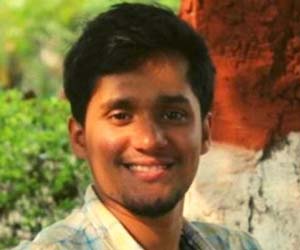On 23 November 2022, Vivekananda International Foundation (VIF) organised a virtual talk on ‘Vedānta and Nationalism’ by Śrī. Śrīnāth Mohandās, Assistant Professor at the School of Ethics Governance Culture (EGCS) and Social Systems, Chinmaya Vishwa Vidyapeeth. Dr. Arvind Gupta, Director, VIF introduced the speaker and mentioned the importance of inculcating nationalism especially among younger generations from a national security angle. On the other hand, he also highlighted that the values like nationalism and patriotism cannot be imposed, rather, they should emerge from within the individual. In this regard, cultural organisations like Chinmaya Mission and Ramakrishna Mission have more public outreach and acceptance than the government. The Director also highlighted that such events should not be restricted to a talk, rather, it should be a movement that we impart through culture.
The speaker began the talk by introducing the concept of nationalism in general and how two point of views exist in India. The first group believes that Indian nationalism is a product of an anti-colonial movement, where all Indians share a sense of victimhood. Here, ‘Nationalism’ is a product of a particular point in history. The second sect considers Nation as something that has an existence by its own and is not a product of history or time, however, from time to time at various historical junctures it has manifested in many ways. According to this sect, India is a civilisational state and its existence is certainly beyond the modern idea of nation-state. Out of them, the speaker derived two questions, which were central to his talk:-
Q. 1 Is Indian Nationalism an appropriation of Western Nationalism?
Q. 2 Is there something distinct about Indian conception of Nationalism?
By bringing in thoughts from Swami Vivekananda, Aurobindo and Subhramanya Bharati, the speaker highlighted that Indian nationalism at its core is not treated by ‘Diversity’, rather, it understands diversity as a work of nature. Though Indian nationalism is not a product of time, its manifestation in the eve of India’s freedom struggle cannot be ignored and has created a national awakening in contemporary times. The talk emphasised on how the Vedāntic concepts like Chiti, Dharma, Karma Yoga are integral to the idea of Indian nationalism. In the words of the speaker, “The conception of nation is like the conception of an individual as Jivatma with a body, mind and intellect complex for self expression, and fulfilling its purpose in the world.”
The speaker concluded the talk by opinionating that there is a need for re-articulating the idea of Indic nationalism in a contemporary way. He also said that such an attempt should not be restricted to geopolitical dialogues, rather, it should pay way for Vasudaiva Kutumbakam.
Before the event proceeded to a fruitful Q&A discussion, Dr. Arpita Mitra Assistant Professor in History, Kazi Nazrul University, West Bengal shared her comments on the topic and the talk. As a concluding statement, Dr. Arvind Gupta, Director, VIF mentioned that while re-articulating Indian Nationalism in the context of Vedānta, there is a need to put it in a language that is intelligible to others.





Post new comment